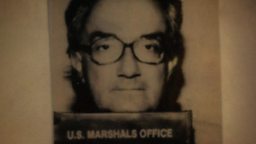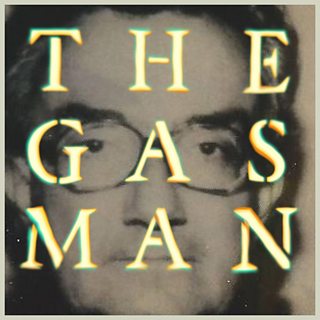The Gas Man: A Fugitive Hiding in Plain Sight
Chloe Hadjimatheou investigates how the Gas Man evaded capture for three decades and why he’s still at large.
In the 1980s, US Special Agent Dennis Bass received a tip-off that changed the course of his career. He was warned about a shipment of suspicious chemicals headed to a secret destination. He followed the lead – and stumbled into a global plot helping fuel a war.
The main suspect? The Gas Man.
So began an international game of cat and mouse, where The Gas Man somehow managed to evade Bass at every turn. And he’s still at large today.
Thirty years on, reporter Chloe Hadjimatheou has set out to solve the mystery of how an international fugitive got away with his crimes – and why he's still on the run.
An international criminal
Chloe Hadjimatheou first became aware of the Gas Man, or Peter Walaschek, through his brief appearance in a film made by a fellow documentarian called Mike over 20 years ago. His film was about chemical weapons, the militaries who'd used them, and their victims.
“What was interesting was this guy had been on the run for 20-odd years,” Chloe explains in the first episode. “He was on Interpol's Red List of international criminals. Mike was interested in him because he'd admitted to selling massive amounts of illegal chemicals in the 1980s – chemicals that could be used to make nightmarish weapons that fill the air with poison killing men, women and children, indiscriminately.
“This man only appeared in the film for a few minutes, and to be honest, Mike had moved on, but I was hooked. This guy had confessed his crimes, but somehow he seemed to have gotten away with it.”

Cat and mouse
Chloe decides there must be more to the chemical dealer’s story. In Mike’s original documentary, he tracks him down to a city in Germany. Though Walaschek is an older man, he cuts an imposing figure, wearing a gold chain and dyed black hair. He takes a swing at the cameraman and knocks him down, before marching off into a nearby police station to complain. The police take no action against Mike – but nor do they take action against the fugitive.
“It's like he thinks the laws of justice and morality don't apply to him,” Chloe says. She decides to hunt him down, following a trail from Europe to Baltimore, then Baghdad, Canada and the Netherlands.
“He's still on the run, but he's hiding in plain sight. And he not only admits his crimes, he actually revels in them, taunting those who've tried to bring him to justice.”

Meanwhile, the “cat” in this global game of cat and mouse was former Special Agent Dennis Bass.
The investigation begins
Bass had joined an export investigations team in Baltimore expecting a quieter life than his previous work in dealing with drug imports to the US. In 1988, on his first day on the team, he got a call about a shipping form from a company that the team had been warned about before.
“I pulled the file and I saw that three years earlier, customs and our headquarters had gotten a tip off from the Dutch embassy,” Bass explains. “We didn't let them know we had a tip, but they said, yeah, we do make that chemical, but we sell it a barrel at a time.”
The chemical, thiodiglycol, is generally used in inks and dyes. But the shipping form contained a red flag: the size of the shipment. It detailed 430 55-gallon barrels, which would fill seven shipping containers, meaning somebody was ordering these chemicals at scale. What’s more, whoever was buying them had bought brand-new shipping containers especially.
“It is very unusual,” Bass explains. “It would be like you coming to the US from the UK and instead of going to Hertz and renting a car, you go into a car dealership and buy a car, and then you stay here three days and you go home.”
When mixed one-to-one with hydrochloric acid, thiodiglycol becomes mustard gas – a man-made chemical weapon. After the First World War, a global treaty in 1920 made it illegal for any country to use it.
Special Agent Bass told his boss: “I have a feeling this stuff is going to Iran or something. We'd found out that it was going to Singapore, and the address was a high rise office building. They weren't taking 430 55 gallon drums up there.”
So Bass proposed a switch – to remove the chemical in the drums and replace it all with water, and follow the shipment its destination. His boss reluctantly agreed.
The raid
Two and a half months later, Bass’ suspicions were proven correct. “On June 28, the DEA advised us that [the shipment] was being loaded on an Iranian ship and it was going to Bandar Abbas, Iran.”
So the company had indeed been sending chemicals to Iran using dodgy documents, but what he didn’t know is who bought it. After the raid, Bass received a call from the export manager in Baltimore.
“Said there's some documents that you didn't get when you were here. One of the things she gave me was a Telex between her and the German national who she was dealing with – a guy named Peter Walaschek.”
That was the first time Special Agent Bass had encountered the Gas Man. He was still far from closing this investigation.
To hear the full story, listen to The Gas Man on ÃÛÑ¿´«Ã½ Sounds.
More from Tortoise Investigates
-
![]()
Who Trolled Amber?
Alexi Mostrous investigates what happened to Amber Heard and who was responsible.
-
![]()
Dr Anti-vax
How did the anti-vax movement get so big?
-
![]()
Hoaxed
An investigation into one of Britain's most serious conspiracy theories.
-
![]()
Sweet Bobby
Sweet Bobby is a jaw-dropping investigation into a tale of deception in the digital age.





